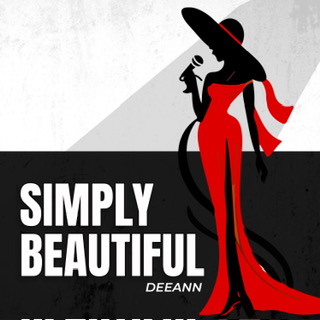PATRICK LEONARD To Release “It All Comes Down To Mood”

“If you are tired of formulaic music like myself, this album by Patrick Leonard will make you sit up and take notice. Surprising melodies, incredible music played perfectly by all concerned. For me it is manna from heaven listening to the unexpected twists and turns. A brave album and one that is a complete triumph. Having had the pleasure of working with Pat this made me feel grateful and made me feel ALIVE.” – Elton John
“Pat Leonard is such a magnificent composer. I don’t think there’s anybody working today with those kinds of skills.” –Leonard Cohen
You could be forgiven for not knowing Patrick Leonard by name, but most certainly, you know his work. The esteemed producer has helped bring to life career-defining recordings by Madonna, Leonard Cohen, Pink Floyd, Elton John, Jewel, Bryan Ferry, Fleetwood Mac, Rod Stewart, and Roger Waters, to name a few. He founded the critically acclaimed early 90’s alt-rock group Toy Matinee. But for the first time in two decades, Patrick Leonard is releasing music that is all his own: “It All Comes Down To Mood”, a sprawling, 16 track double album that brilliantly conveys his artistic genius.
So what does “It All Comes Down To Mood” sound like? The best genre descriptor might be “art-pop”. The songwriting is adventurous, both musically and lyrically. Elemental influences of all Patrick Leonard’s famous clients emerge in an organic way – but not overtly. “My vocabulary is pure 60’s and 70’s rock ’n’ roll and prog rock, but when I’m working, if something that I’m doing reminds me of someone else’s music, I stop,” says Leonard.”I have no interest in being an emulator.” The common denominator between the classic albums which influenced Leonard and his own album is that they reward attentive listening. Each of the album’s 16 tracks are like masterpiece paintings, which reveal more the deeper you listen. The production is pristine, the playing is endlessly tasteful and the lyrics thought provoking. But what brings it together is an emotional component that is rarified in modern music.
Supported by a dream cast of supporting musicians: Tony Levin, Tim Pierce, Wendy Melvoin, John Patitucci, Aaron Stirling, Martin Barre, James Harrah, Ian Anderson, Anna Mjoll, Gerry Leonard and Paul Franklin – and working without the typical budgetary or creative restraints usually imposed by major labels, “It All Comes Down To Mood” is a record that probably couldn’t be made by anyone else today. It was a challenge that Leonard has readied himself for over his entire career. “You have to decide about everything – all of it,” says Leonard, speaking about taking 100% ownership of his own creative output. “I remember working with Madonna during “True Blue”, and she wanted to do something musically that I thought didn’t work and I basically told her no. Coincidentally, the album artwork with that famous cover photo by Herb Ritts had just been delivered to the studio for her approval, so she reached over, picked it up and said, “whose picture is on the cover of this record?” he laughs. “And I thought, she’s right. It’s your record, it has to represent you, not anyone else.”
Leonard started work on the album by writing autobiographically. “The first ideas included “Looking for a Heart, bout a state I found myself in more than once in my life, and “Mary Saw Angels” a family story about my mother and my sister Mary. Then I wrote “When it Comes to Giants”, which is about this “it’s never enough” culture of ours,” he says. “Little did I know at that time that this endeavor was going to take over a year, but that’s how it went.”
Leonard continues, ”At one point I realized this record had a lot to do with the 70s, so I decided to impose some rules on it. I wouldn’t use any keyboards that didn’t exist in the 70s and none that came to be after that; basically no modern synthesizers and certainly no PC-based synths. While writing the music I found myself using odd bar lengths and time signatures, something I hadn’t done or thought about in years. I think I’d discovered the subjects/ POV that the narrator was going to take on and re-discovered the 15-year-old boy inside me who loves progressive rock music as well as vinyl records, ” says the artist.
And Leonard has taken great pains to ensure that the vinyl package of “It All Comes Down To Mood” is something that 15 year old boy would be impressed by indeed. Firstly, Leonard commissioned the legendary StormStudios, founded by the late designer Storm Thorgerson, to design the album artwork. Analog revivalist Michael Fremer consulted with Leonard on the vinyl package, which features a tip-on jacket, was cut by Chris Bellman at Bernie Grundman Mastering, and mastered by legendary engineer Bob Ludwig as his last project on his last day at Gateway Mastering prior to his retirement. The double album was lovingly sequenced by sides, both for thematic continuity and sonic benefits. Fremer brought test pressings of the record to various audio shows over the past few months and reviewed it for vinyl enthusiasts who were “blown away” by the music and the sound – in several cases, the demo received a standing ovation when the record was done playing.
Patrick Leonard’s goals for “It All Comes Down To Mood” are a bit ambivalent. “There’s some liberation in this new record. I think music and its content have suffered from what technology brought to the party. I won’t go into this too deeply because I’ll just sound like a grouchy old snob (which maybe I am), “says Leonard. “I’ll admit that I liked it better when musical aspirations were more about being better as a musician, and less about chasing digital celebrity. If all the stars in the sky were digital projections except one, how would you ever find that one?” he ponders.
“I worked with Leonard Cohen for 6 years; his work is without peer, his methods and discipline, the same. I learned so much from him, how could you not? Among the most important lessons was the ability to know when it’s done.” With “It All Comes Down To Mood”, Patrick Leonard has put a new star in the sky, made from heart, soul, and will. It shines brightly.
It’s done.
“It All Comes Down To Mood” will be released via Ruudy 6 Records on July 26th, 2024 on Deluxe Vinyl and streaming. The first single, “A Walk In The Woods”, will be serviced to radio and streaming on June 28th, 2024.
In 10 words or less, what are the songs about?
Hat and Coat is the nature of the pirate
When it Comes to Giants part one is about never having enough
Maniac Hill is about January 6th
Jimmy Upside is about getting lost in party culture
Sad Ass World is about this sad ass world
Anderson and Council figured it out for yourself
Mary Saw Angels is about unhealthy mother daughter relationships
At The End Of The Day is about conversations with Leonard
Bishops of Fright is about the dangers of social media
In Came the Fool another one that’s not too hard to work out on your own For Her is the song I wrote about meeting Anna
Devils in the Rain is about love never being wrong
Up in the Sky it’s about being together even when you’re not
Looking for a Heart is autobiographical
When it Comes to Giants part two a more human version of never having enough
Walk in the Woods there’s a little bit about everything
https://patrickleonardmusic.com/m/



















